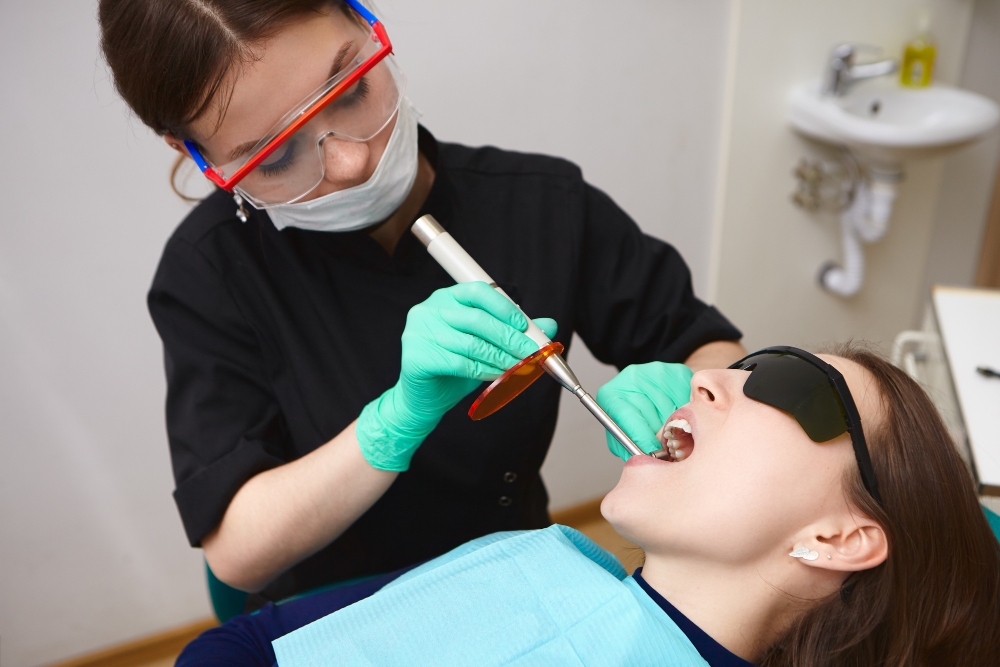The extraction of wisdom teeth is a standard procedure in dental surgeries. Almost everyone needs to get their wisdom teeth extracted at some point. Wisdom tooth extractions are not complicated or risky, and wisdom teeth are not particularly useful. Highly skilled dentists provide wisdom tooth extractions in Thousand Oaks; while it may take place in just one appointment that is approximately one to two hours long, the recovery can last for 2-3 weeks. If complications arise, it may take longer to heal from the surgery properly. Let’s explore how long you can expect to recover from the wisdom tooth extraction.
-
What to expect on the day first:
After your wisdom tooth surgery, you will likely experience significant discomfort, swelling, bruising, and bleeding. You should rest for at least the first 24 hours and use ice packs for 20 minutes to reduce swelling and relieve pain. Take all pain medications and antibiotics as directed. Until the blood clot forms over your extraction site, place moist, clean gauze to protect the socket and absorb blood. In most cases, bleeding will cease entirely after the first 24 hours, and you can stop using gauze.
Starting right after your surgery, you will have to adjust your diet. Until any anesthesia wears off, you should avoid anything hot because your mouth may not be able to detect if a food has the potential to burn you.
-
What to expect in the first three days:
During the first 2-3 days after your procedure, it is expected to experience swelling and bruising. You can apply ice packs or cold compresses to your face for 20 minutes to alleviate the discomfort and swelling. You can also take prescription or over-the-counter pain medications as directed. It is important to avoid applying heat to the extraction site area, as this can increase blood flow and cause further discomfort.
-
What to expect in the first week:
Within the first seven days after your treatment, you must return to your surgeon’s office to remove your stitches if necessary. By this point, you should feel much better and notice a significant improvement in swelling and bruising. While you may be able to resume your routine, there are some restrictions to keep in mind, such as avoiding driving, heavy lifting, and other strenuous activities.
-
What to expect in seven to ten days:
It is expected that within the first ten days after your surgery, any stiffness in your jaw and limitations in your range of movement should be completely gone. Contacting your oral surgeon’s office is essential if you experience pain while speaking, chewing, yawning, or smiling.
Dentists recommend you start exercising your jaw joints after the first 48 hours to help recover. You can gently open your mouth as wide as possible and move your jaw from side to side. However, if you feel, see, or hear anything unusual while moving your mouth, stop exercising your jaw immediately and call your oral surgeon if you notice any new bleeding or swelling.
In addition to exercising your jaw by performing a range of movements, you can massage your joints to relieve pain and allow for more comfortable motion. Massaging your jaw joints for a few minutes can significantly improve your comfort and range of jaw movement.
-
What to expect after two or three weeks:
It usually takes two to three weeks for your extraction site to heal completely. Any bruising or swelling should subside during this time, and you should be able to move your jaw without discomfort. However, visiting your oral surgeon if you still experience pain or discomfort after two to three weeks is mandatory. Consider all-on-4 dental implants in Thousand Oaks if you have multiple missing teeth; they look and function like natural teeth.
Wisdom teeth extraction is essential for maintaining healthy oral hygiene. So, if your dentist recommends it, there is no reason to be anxious. Just think about it as a positive step towards a healthy mouth. Also, remember to choose the right dentist for the procedure.

